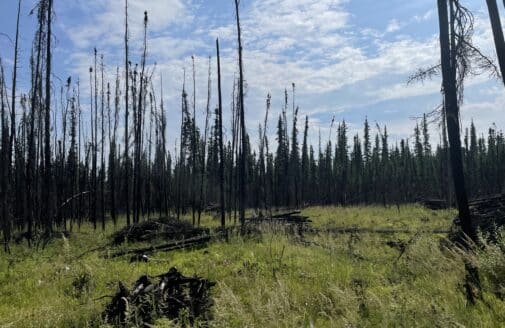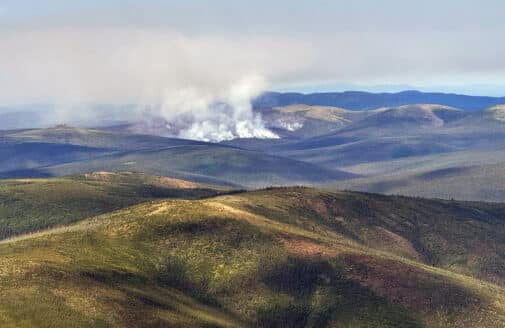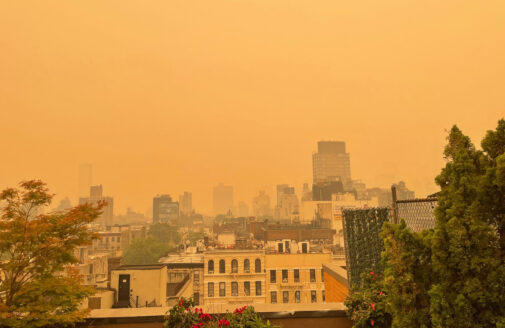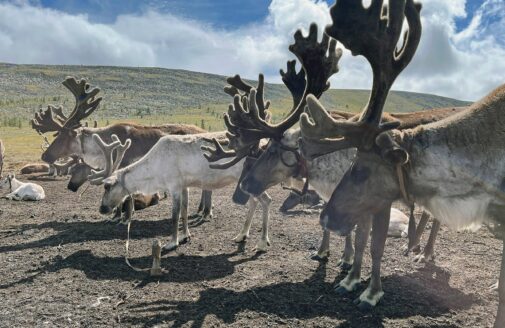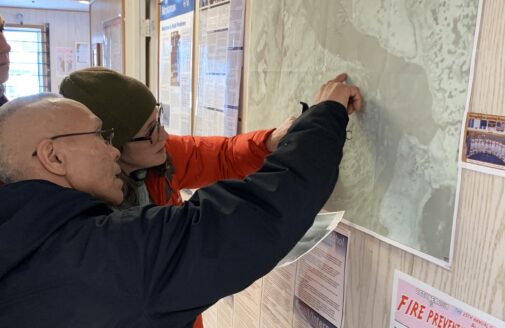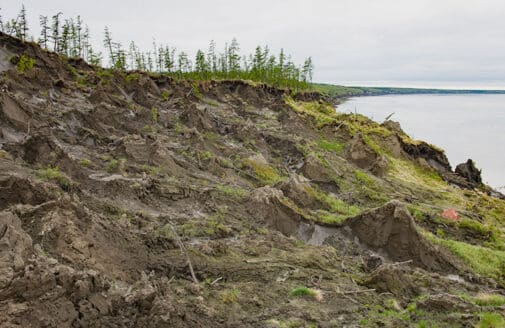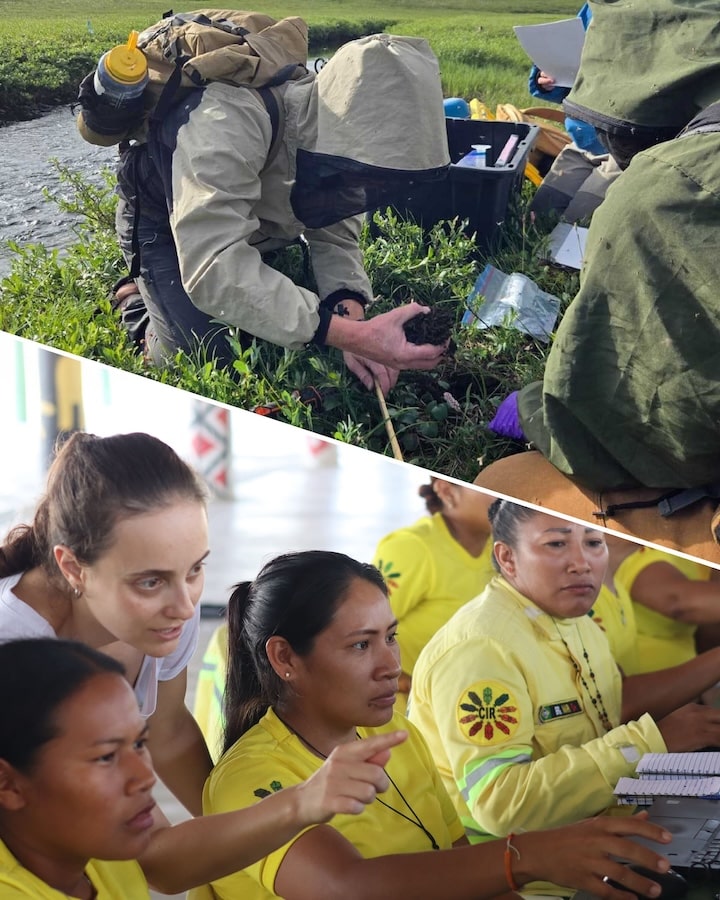Reflections on another Canadian wildfire season
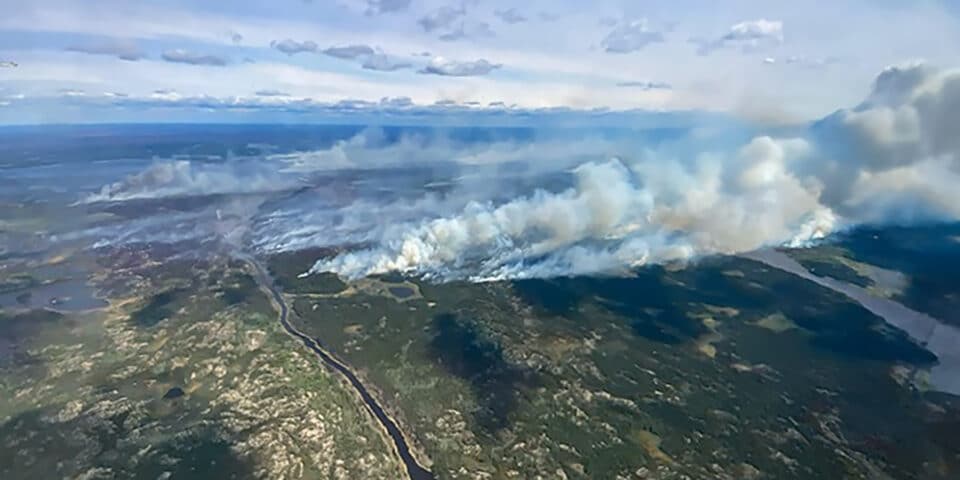
The Tulip Lake Wildfire on the Alberta-NWT border, June 2, 2025.
photo courtesy of Alberta Wildfire
The summer of 2025 is showing the effects of climate change, with severe storm activity, flash flooding, and heat waves all making national headlines in recent weeks. What has received less attention—and certainly less than it deserves—is the record-breaking wildfire season impacting Canada.
Already this summer, Canadian officials have reported more than 2,000 wildland fires, which is slightly above the ten-year average. But those fires have burned an area more than four times the average. Out-of-control fires have forced tens of thousands of people to evacuate their homes. And smoke from these fires has brought air quality and health impacts to communities both nearby and as far away as Europe.
These fires are part of an insidious cycle of escalating climate change. Rapid warming is extending the fire weather season, increasing lightning ignitions, and contributing to heat-stressed vegetation that fuels larger fires. And the fires further exacerbate the situation by releasing massive amounts of carbon from trees and soils. A recent synthesis led by Woodwell’s Dr. Anna Talucci confirmed that the carbon impacts extend long after the fire is extinguished, increasing permafrost thaw and the associated emissions for up to two decades.
Throughout the summer, we will be sharing a wealth of information and perspectives about the rapidly shifting wildfire regime in the Arctic/boreal region—first-person essays, accessible explanations of key concepts, and immersive storymaps that bring to life our work and the impacts communities are facing. Boreal fire is an important piece of our climate puzzle that deserves to be recognized and understood.
For some (and I would put Woodwell’s scientists in this category), recognizing the consequences of boreal fire and understanding the inextricable links to climate change leads to a sense of urgency and purpose that drives action. For others, it can lead to overwhelm and hopelessness. If you are in that camp—and all of us are sometimes—here’s what I want you to know: there are things we can do.
While reducing fossil fuel emissions is the single most important step we can take to limit the risk of boreal fire in the long-term, fire management can reduce impacts, including carbon emissions. In 2022, Drs. Carly Phillips, Brendan Rogers, and Peter Frumhoff led a study showing that fire suppression could reduce carbon emissions at a cost of just $12 per ton, making it a highly cost effective climate solution. We launched a pilot project to test the feasibility of deploying fire suppression for emissions reduction and, as recently as this month, we have been working to raise awareness at the federal level about this pragmatic climate solution.
With active research at the fire-climate intersection in both the Arctic/boreal region and the Amazon, Woodwell Climate brings a unique array of experience and expertise to these issues. While there are many differences between what’s happening in the Arctic and the tropics, there are also parallels. And both the similarities and the differences offer opportunities for insight and cross-pollination.
Of course, new Western science is far from the only source of solutions, and those solutions cannot focus on carbon alone. Indigenous knowledge and cultural burning practices reflect millennia of experience, relationship, and wisdom. We are working with Indigenous colleagues and collaborators to explore how fire management can better integrate climate, health, and cultural values. For a powerful perspective on this topic, I highly recommend Senior Arctic Lead Edward Alexander’s essay in a recent special issue of Wildfire Magazine.
This is just one example of how our communities and our science are strengthened when we can come together to see our challenges from a range of angles, and when we can bring different ideas about the path forward to the table. Woodwell’s network of partners and supporters is large, interconnected, engaged, and resilient. It is one of our greatest strengths, and an immense source of comfort and inspiration, especially when obstacles loom large. Thank you for being part of that.
Onward,





